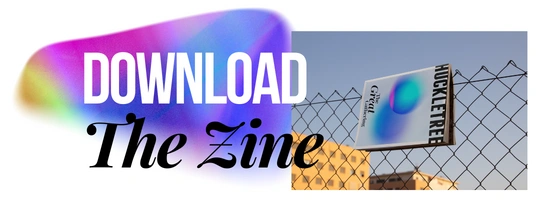The Gathering, Regrouped
Huckletree's Editorial TeamThe Editorial TeamHuckletree11/1/2022
Has there ever been a gathering more legendary than Woodstock? The 1969 event was a pivotal moment not just for music but for the counterculture movement, and became quickly known for bringing together an unprecedented 400,000 people, at least double the expected crowd, with no violence or conflict and nothing but a shared spirit of peace, love and cooperation.
It was also a hotbed of innovation. It introduced the world to what are now common music festival features — multi-day camping, the ‘crafts village’, the ‘freak-out tent’ for people on bad trips. A food shortage saw the whole surrounding town spring into action to feed the crowd with whatever they had on hand, which was turned into mass free meals like vegetable stews and breakfast oats. And musicians were pushed to greatness, with moments such as opening act Richie Havens’ iconic performance of ‘Freedom’, entirely improvised after he was called back for four encores and ran out of material.
And the impact of this one gathering didn’t end on that dairy farm in New York State. Its visibility helped to spread the ideals of the counterculture, influencing society at every level. Some have argued they are even entwined in the rise of Silicon Valley, whose originators were driven by the view that technology could be a tool for liberation through personal computing and knowledge sharing. Engineers, hippies and hobbyists of the area came together intellectually through the legendary magazine The Whole Earth Catalog, which was like a paper precursor to the internet, and physically through organisations like the Homebrew Computer Club, where Steve Jobs and Steve Wozniak debuted their prototype for the Apple-1.
Extraordinary things happen when we come together with a shared vision, or even just with a shared question for what else could be possible. Some of the biggest innovations have come from unprecedented moments of cooperation. We mapped the genome through the world’s largest collaborative biological work, the Human Genome Project, involving 20 university and research centres across three continents. We explored the stars through the Hubble Space Telescope, a joint effort between NASA and the European Space Agency that often involved teaming it up with other telescopes. And we developed a Covid vaccine in just one year, a feat that would have been impossible without open science, industry partnerships and the community-mindedness of study participants (even if patent rows also impeded distribution).
Now, as we transition from pandemic-enforced remote working to flexible and hybrid models, it is clear that the impulse to gather is a key driver. Polls frequently show between 70 and 90% of people are keen on a partial return to work, but few mention wanting to sit at the same desk all day; far more talk about missing the connection, support and ineffable spark that comes from being physically present with their peers. And that link between spontaneous interaction and innovative spirit is backed up by data — in one study by MIT and UCLA researchers using smartphone geolocation data, companies whose members most frequently bumped into their peers, in- and outside the workplace, had the most patent citations.
The lesson from history is for managers to embrace this innate social impulse. Time in open-ended conversation is never wasted, nor is spending the time to curate these gatherings — rather, it’s the key to real productivity.
Download your copy of The Great Gathering Zine to find out how you can lead, steer and inspire your teams when together and apart. Happy Gathering.
Huckletree's Editorial Team
info@huckletree.com
